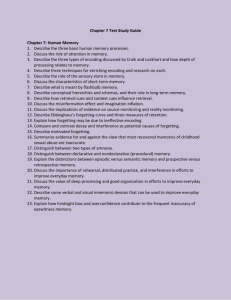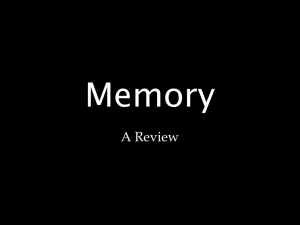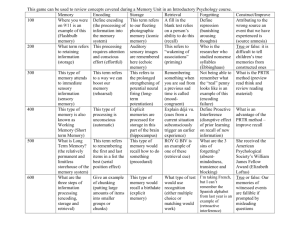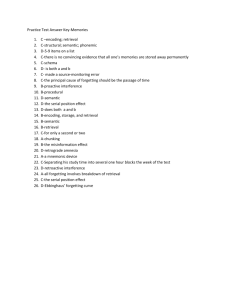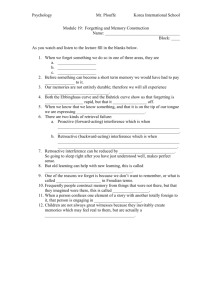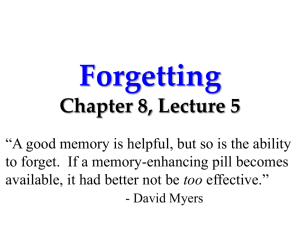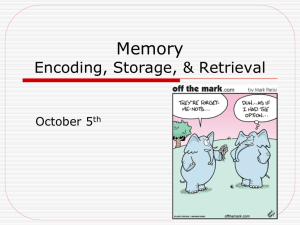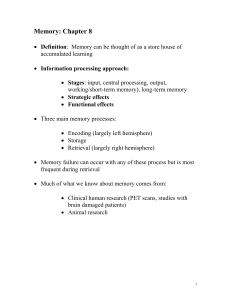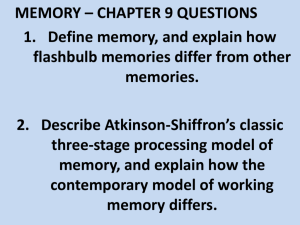General Psychology (PY110)
advertisement
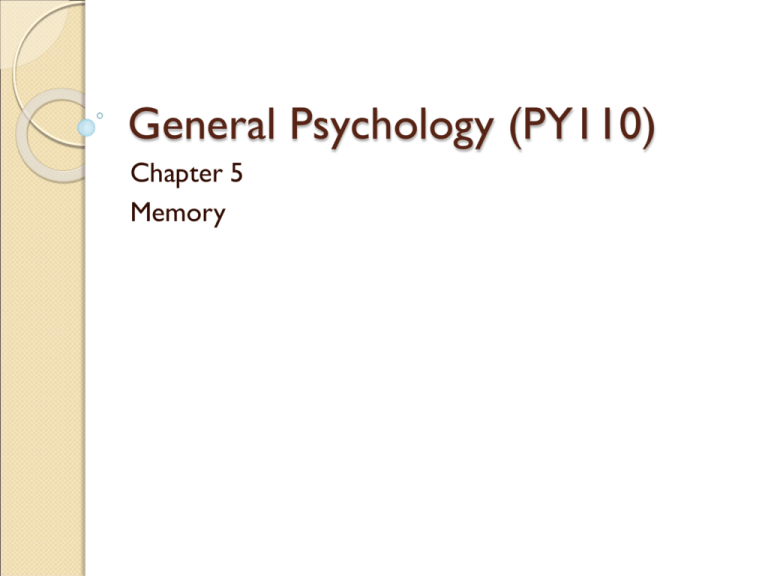
General Psychology (PY110) Chapter 5 Memory Sensory Split Second Limited Capacity Short-Term 30 Seconds Long-Term Forever Limited Duration Increasing Short Term Memory Goal= Short term Maintenance Rehearsal Long Term ◦ repeating information in short-term memory to keep in from fading from short-term memory Chunking ◦ a strategy for making more efficient use of short-term memory by recoding information Information Processing System Encoding The process of transferring information from one memory stage to the next Storage The process of maintaining information in a particular stage Retrieval The process of bringing stored information from long-term memory to the conscious level in short-term memory Encoding Failure Encoding failure theory says that sometimes forgetting is not really forgetting, but rather that the information never entered long-term memory in the first place. Now an example of encoding failure… An Example of Encoding Failure Methods for Improving Encoding Mnemonics: ◦ Useful for remembering lists of items, especially ordered lists, especially ordered lists, speeches, and long passages of text. Spacing (Distributed)effect: ◦ Superior long term memory for spaced study versus massed study (cramming). Methods of Retrieval Recall requires the reproduction of the information with essentially no retrieval cues Example: Recognize requires the reproduction of the information with essentially no retrieval cues Example: Relearn also called the savings method, is a measure of the amount of time saved when learning the information for a second time Example: Essay Multiple choice Studying for a comprehensive final Recall Primary Effect and Recency Effect Primacy Recency In a list of words the recall of the items at the start of the list is superior to those in the middle. In the same list the recall of the words at the end of the list will also be superior Ebbinghaus Curve for Forgetting Theories of Forgetting Interference Theory ◦ Proposes that other information interferes and makes the forgotten information inaccessible. There are two types of interference… Types of Interference Proactive interference occurs when information you already know makes it hard to retrieve newly learned information Retroactive interference occurs when information you just learned makes it hard to retrieve old information Proactive and Retroactive Storage Decay Theory suggests that forgetting occurs because of a problem in the storage of the information ◦ The biological trace of the memory gradually decays over time and the periodic usage of the information will help to maintain it in storage Psychoanalytic Repression ◦ Unknowingly placing an unpleasant memory or thought in the unconscious. Not remembering a traumatic incident in which you witnessed a crime.
